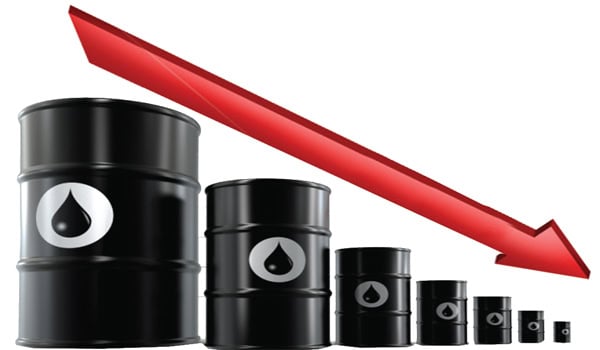SINGAPORE (APP) – Oil prices resumed their decline in Asia Monday as a global glut of crude supplies showed no signs of abating in the face of sluggish demand, analysts said.
US benchmark West Texas Intermediate (WTI) for September delivery fell 63 cents to $41.87 a barrel in late-morning trade, the lowest since March 2009. Brent crude for October, a new contract, was down 65 cents to $48.54.
WTI and Brent’s September contract rose in New York on Friday after closing at their lowest level in six and a half years in the prior session.
But oil came under renewed pressure in Asia after the latest data showing the number of rigs drilling for US oil increased last week, the sixth rise in seven weeks, analysts said.
The news added to fears of a prolonged global surplus as output from the Organization of the Petroleum Exporting Countries and the United States remains robust despite the tumbling prices.
“The combination of elevated stockpiles in the US and increasing production from OPEC, sluggish demand growth, and a stronger US (dollar) would continue to pressure oil prices,” said Bernard Aw, market strategist at IG Markets in Singapore.
The dollar strengthened in Asia on Monday after solid data boosted expectations of an imminent US rate rise, after China’s shock devaluation of the yuan last week hurt Asia-Pacific currencies.
As oil is traded in the US currency, a strong dollar makes it more expensive for international investors, dampening demand.
“The devaluation of the yuan by China led to the weakening of other emerging market currencies,” said Sanjeev Gupta, who heads the Asia-Pacific oil and gas practice at professional services firm EY.
“This spells negative news for crude as a strong US dollar makes crude expensive for importing countries, thereby curtailing demand.”
Gupta said traders will be watching Chinese home prices data due for release Tuesday for further clues on the health of the world’s second-largest economy.
Traders will also comb through the minutes of the US central bank’s meeting in late July, due for release Wednesday, for signs on when the Fed will raise interest rates.
“We continue to expect further short-term downside in WTI crude over the next few months,” the Australia and New Zealand Banking Group (ANZ) said in a market commentary.














